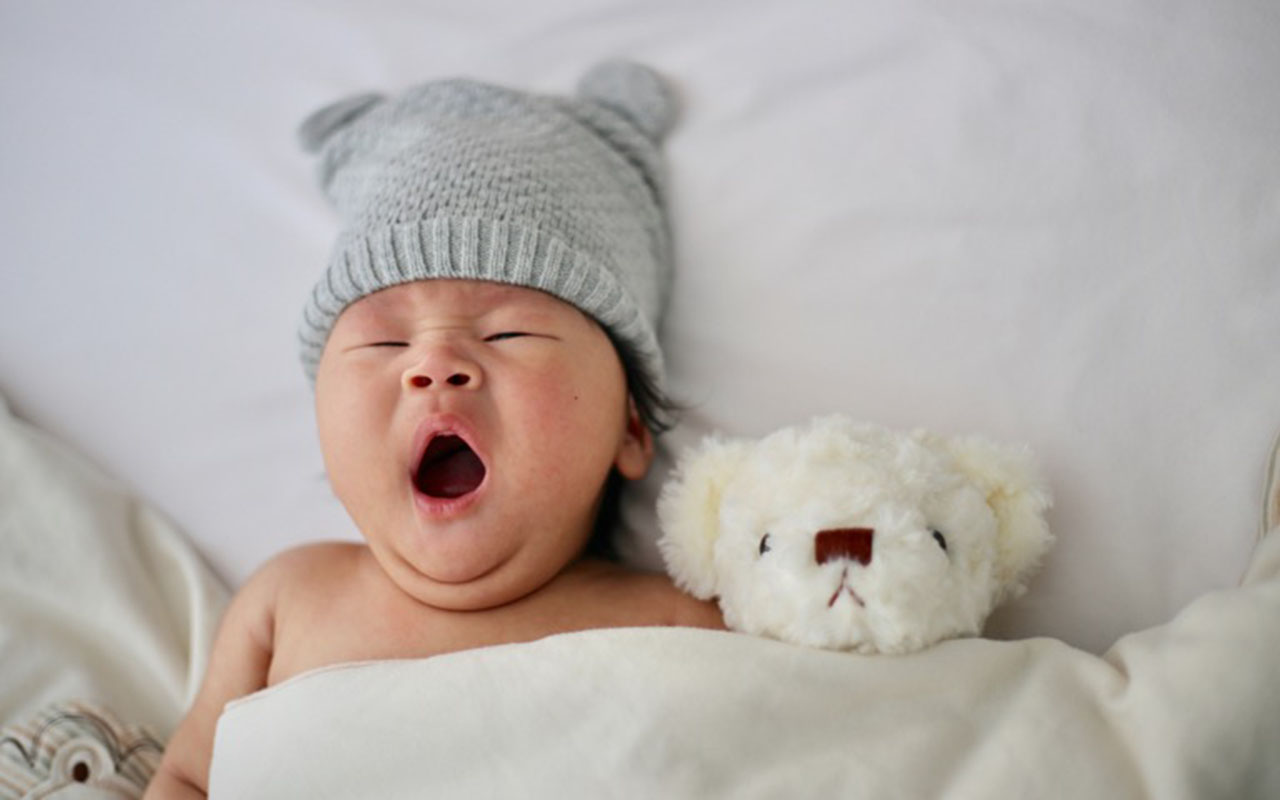The unfortunate reality that all parents face is that their little bundle of joy doesn’t come with an instruction manual. How much easier would parenting be if the hospital provided you with a sound chip of your child that told you what each chirp, squawk, or cry meant and what you needed to do about it? Pretty darn convenient, we say!
The lack of any official instruction often leaves you to try and figure out what your baby needs through trial and error. Is that squawk a hunger squawk or a tired one or maybe it’s just gas? Until you get into the rhythm of having a newborn, you will inevitably try feeding, changing, and rocking the baby each time they cry. The good news is that eventually you’ll pick up on a few cues that take out some of the guesswork. The bad news is that sleeping difficulties are usually harder to pick up on than gas, sickness, or hunger.
So how can you tell if your baby is getting enough sleep, and are there consequences if your baby doesn’t sleep enough? Both are good questions that we are here to answer today!
Is My Baby Getting Enough Sleep?
This question is a loaded one because every baby is different, and their needs change as they get older. To answer if your child is getting enough sleep, it’s a good idea to familiarize yourself with typical sleep needs for children newborn to four years old. Generally speaking, a child’s sleep needs fall into these ranges:
| Age | # of Naps | Ideal Time Between Sleep | Total Nap Time | Total Overnight Sleep | Total Sleep Needs |
|---|---|---|---|---|---|
| 1-2 Months | 4-6 | 1 Hour | 6 Hours | 12 Hours | 16-18 Hours |
| 3-4 Months | 3-4 | 1.5 Hours | 4-5 Hours | 12 Hours | 15-17 Hours |
| 5-6 Months | 3-2 | 2-3 Hours | 3-4 Hours | 11-12 Hours | 12-16 Hours |
| 7-11 Months | 2 | 3 Hours | 3 Hours | 11-12 Hours | 12-16 Hours |
| 12-15 Months | 2-1 | 4 Hours | 2.5 Hours | 11-12 Hours | 12-14 Hours |
| 15 Months – 4 Years | 1 | 5+ Hours | 1-2 Hours | 10-12 Hours | 11-14 Hours |
It’s important to note that some kids need more sleep and some kids need less, and while that may seem like a cop-out answer, it’s the truth. So it’s worth saying again: for most kids, these are the sleep needs you should be shooting to meet each day. If your child is significantly over or under these guidelines, you may need to reevaluate your child’s sleep habits and schedules.
That third column, “Ideal Time Between Sleep,” is another name for a major concept in sleep training: awake windows. Being mindful of your child’s awake windows relative to their age can help you schedule naps and bedtime so that you avoid the dreaded “overtired.” When your child is overtired, you’re almost guaranteed to have a tough time getting them to sleep well. By monitoring awake windows and looking for cues that your child is getting tired before they’re overtired, you have a pretty good chance of success during sleep training. Some common signals that tired children exhibit include:
| Infant | Toddler |
|---|---|
| Rubbing eyes | More irritable or crabby |
| Snuggling into you | Doesn’t eat well |
| Turning face away from you | Gets clingy |
| Stroking own cheeks | Cries more often |
| Crying | Gets very active suddenly |
| Getting clingy | Falls down/runs into things |
| Pulling on ears | Laying down |
| Yawning | Lack of interest |
| Yawning |
You may need to start explicitly looking for your child’s unique cues so that you can set a schedule around their existing sleep preferences. Once you have a grasp of how much sleep your child needs and when they prefer to sleep, then you can begin adjusting their schedule to meet yours.
Are there consequences if my baby doesn’t get enough sleep?
The consensus for this question is yes, though it’s harder to know how sleep deprivation affects very young babies in the long term. What we do know is that adults, teens, and older children have several common effects from not getting enough sleep. They include:
- Crabbiness
- Attention difficulties
- Sensitivity
- Mood swings
- Impatience
- Problems in school or at work
- More risk-taking behavior
- Mental health issues
- Relationship difficulties
- Increased physical ailments like obesity, diabetes, and heart disease
Since we can’t specifically ask a young baby if they feel or have experienced the above problems (and frankly, some don’t apply anyway), we have to go off of what we observe. Typically, tired babies are fussier and less engaged than babies who get enough sleep. If left unchecked for significant periods of time, those two qualities alone can lead to a whole host of problems, including difficulty bonding with parents, eating issues, and some physical, emotional, and developmental delays.
The long and short is this: babies, toddlers, and young children need good sleep in order to develop and grow. The long-term effects of chronic tiredness from infancy aren’t very well known, but most people agree that you need to make sure that your baby is getting the sleep they need. If you are struggling with a baby, toddler, or kid who won’t sleep, you aren’t alone, and we are here to help. Each of our sleep coaches has sleep consultant certification that will help you understand and modify your baby’s sleep schedule to make sure that your baby stays happy and healthy by being well-rested.


